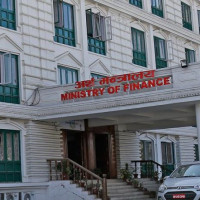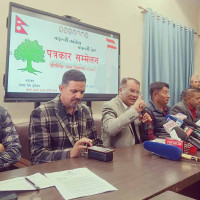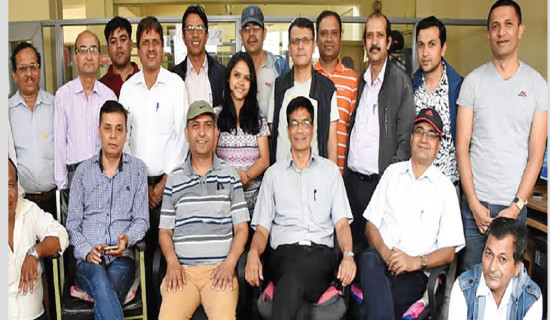- Friday, 30 January 2026
Growing dengue cases detected across country
Kathmandu, Aug. 16: Dengue is a mosquito-borne viral disease with increasing burden and geographic spread over the years in Nepal. Amid the spread of COVID-19 infection, several cases of dengue have been detected across the nation as of late.
More than 900 cases of dengue have been reported within seven months this year, according to Epidemiology and Disease Control Division (EDCD).
According to Dr. Gokarna Dahal, head, NTD and Vector Borne Disease Control Division under the EDCD, more than 900 cases of dengue were detected from January till mid-June this year in Nepal. This year, many cases of dengue were detected in Bagmati and Lumbini provinces.
The cases of dengue rise with the onset of monsoon season every year, said Dr. Dahal and added that more than 500 cases of dengue were detected in 58 districts last year. The dengue cases will increase for three more coming months, he added.
According to the data provided by the EDCD, in 2019, there was a large dengue epidemic in Nepal, with a total of 17,992 reported cases from 68 districts from all the seven provinces.
There were six dengue deaths reported from five districts, with two deaths in Chitwan, and one death each in Sunsari, Sindhupalanchock, Kathmandu and Doti during the 2019 epidemic.
Dengue is a mosquito-borne disease transmitted by female Aedes aegypti and Aedes albopictus mosquitoes. The same vector also transmits chikungunya, yellow fever and Zika viruses, according to the World Health Organisation.
The symptom of dengue is characterized by acute fever, frontal headache, vomiting, joint pain and macular skin rash. However, some patients may develop life-threatening conditions such as acute dengue hemorrhagic fever, dengue shock syndrome, and multi-organ failure, according to doctors.
The EDCD has developed an Early Warning and Reporting Systems (EWRS) to issue warning on potential outbreaks.
“The EDCD has increased surveillance at the dengue affected areas. We have started a dengue search-and-destroy campaign in the affected areas, following reports of infection of the virus in several people,” said Dr. Dahal.
The municipalities have coordinated with the EDCD in newly dengue spread districts. This year, the cases of dengue were detected in Lalitpur, Kavre and Dhading and the local levels are coordinating with the section of the EDCD, said Dr. Dahal.
Last year, we had allocated budget to destroy mosquito in 200 municipals across the nation to control the spread of disease, he added.
Dr. Sher Bahadur Pun, chief of the Clinical Research Unit at Sukraraj Tropical and Infectious Disease Hospital, prioritised ‘search and destroy’ drive, including destroying possible breeding containers of the mosquito larvae, reducing man-mosquito-contact by physical barriers and community participation.
In order to control the epidemic of dengue, collaboration among the three tiers of government is imperative for the identification of risky areas, mapping, search and destroy, awareness, mass mobilisation, capacity building, said Dr. Pun.
According to Dr. Sher Bahadur Pun, there is not any specific medicine for dengue disease, However, doctors suggest the dengue infected people should take medicines only based on the prescriptions of doctors.
The main factors for the spread of dengue are climate change, global warming, storage of water in containers in absence of proper water supply, unplanned urbanisation, poor sanitation high population density, unregulated construction, migration (global and domestic travel) and cryptic breeding sites.
According to Dr. Sameer Kumar Adhikari, spokesperson at the Ministry of Health and Population, dengue can be avoided by preventing mosquito bites and mosquito breeding areas.
Dr. Adhikari suggested using insect repellent, wearing full-sleeve clothes, using mosquito net, emptying possible mosquito breeding items that hold water, such as tires, buckets, planters, pools, toys, flowerpots or trash containers.
“We have alerted all concerned agencies about risk of the spread of dengue and asked them to take extra precautions.”
















